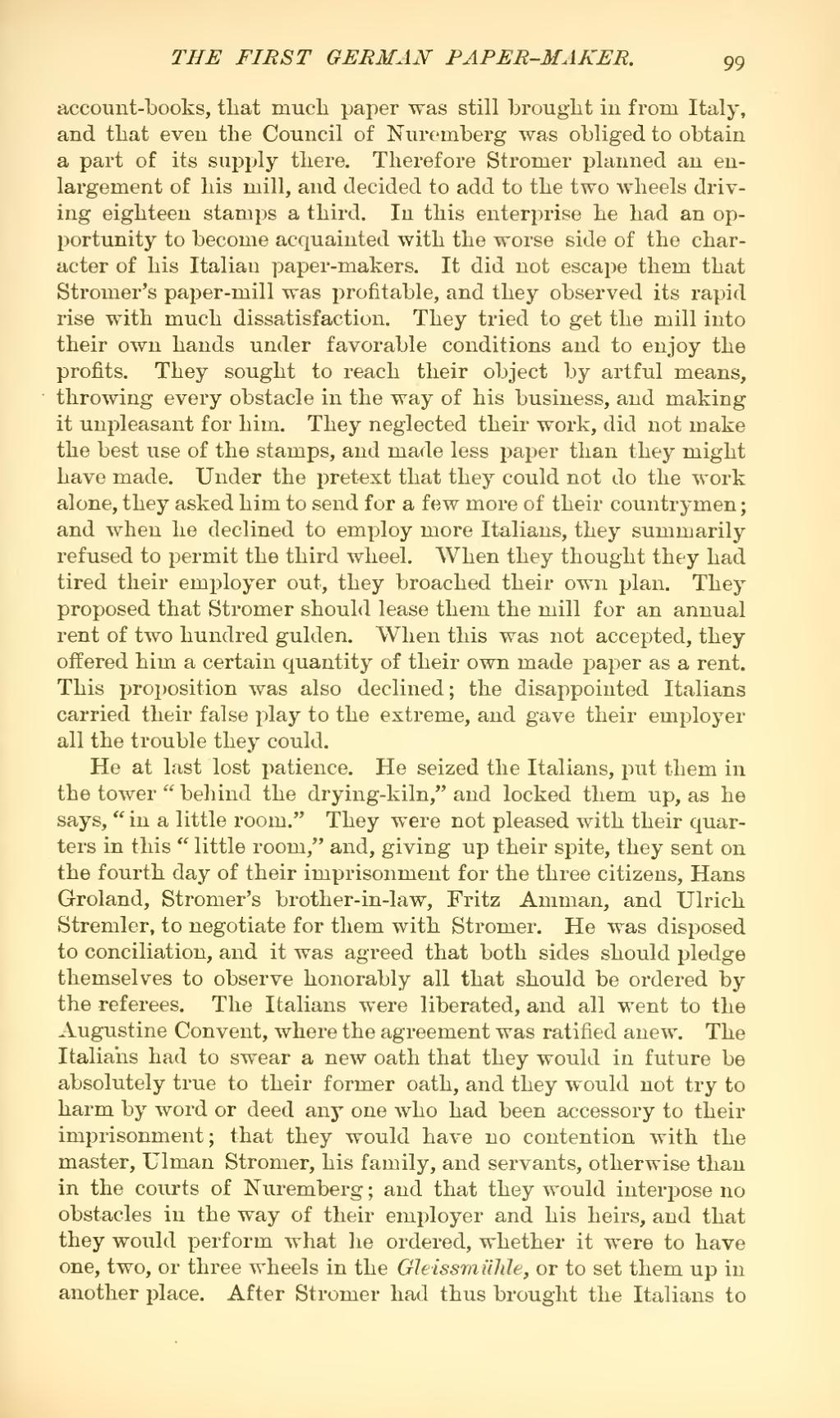account-books, that much paper was still brought in from Italy, and that even the Council of Nuremberg was obliged to obtain a part of its supply there. Therefore Stromer planned an enlargement of his mill, and decided to add to the two wheels driving eighteen stamps a third. In this enterprise he had an opportunity to become acquainted with the worse side of the character of his Italian paper-makers. It did not escape them that Stromer's paper-mill was profitable, and they observed its rapid rise with much dissatisfaction. They tried to get the mill into their own hands under favorable conditions and to enjoy the profits. They sought to reach their object by artful means, throwing every obstacle in the way of his business, and making it unpleasant for him. They neglected their work, did not make the best use of the stamps, and made less paper than they might have made. Under the pretext that they could not do the work alone, they asked him to send for a few more of their countrymen; and when he declined to employ more Italians, they summarily refused to permit the third wheel. When they thought they had tired their employer out, they broached their own plan. They proposed that Stromer should lease them the mill for an annual rent of two hundred gulden. When this was not accepted, they offered him a certain quantity of their own made paper as a rent. This proposition was also declined; the disappointed Italians carried their false play to the extreme, and gave their employer all the trouble they could.
He at last lost patience. He seized the Italians, put them in the tower "behind the drying-kiln," and locked them up, as he says, "in a little room." They were not pleased with their quarters in this "little room," and, giving up their spite, they sent on the fourth day of their imprisonment for the three citizens, Hans Groland, Stromer's brother-in-law, Fritz Amman, and Ulrich Stremler, to negotiate for them with Stromer. He was disposed to conciliation, and it was agreed that both sides should pledge themselves to observe honorably all that should be ordered by the referees. The Italians were liberated, and all went to the Augustine Convent, where the agreement was ratified anew. The Italians had to swear a new oath that they would in future be absolutely true to their former oath, and they would not try to harm by word or deed any one who had been accessory to their imprisonment; that they would have no contention with the master, Ulman Stromer, his family, and servants, otherwise than in the courts of Nuremberg; and that they would interpose no obstacles in the way of their employer and his heirs, and that they would perform what he ordered, whether it were to have one, two, or three wheels in the Gleissmühle, or to set them up in another place. After Stromer had thus brought the Italians to
